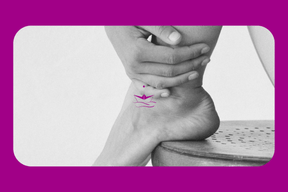Liberating Sexual Energy vs. Squandering Sexuality
In the modern world, we’ve started using the term “trauma” much more frequently, and most of us now understand that we are largely made up of unconscious reactions.
Especially in societies where sexuality is taboo, the occurrence of sexual traumas is quite common. We are all searching for ways to cope with it.
People want to liberate their sexual energy, their life force, in some way. We read countless articles, attend therapies, and watch videos in pursuit of this.
We know how important it is for a person to reconcile with their own sexual being.
But shall we approach the topic from a different angle?
Is liberating sexuality the same as throwing it around freely? Is it about constantly desiring sex? Is it about defining oneself solely through sexuality, sexual orientation, or identity? There is a great deal of confusion around these ideas.
We are living in an era where modernity, especially among the younger generation, defines sexual freedom as the norm. The notion that polyamorous experiences are the only way to go, that remaining experimental is the right thing, and even calling someone old-fashioned if they prefer to share their sexuality only with someone they love, is becoming more common.
We are trying to fill our insatiable curiosity for pleasure and all our inadequacies through sexuality, and under the guise of freedom, we are consuming sexuality.
Not being able to experience sexuality freely, even if we want to, is indeed an issue in our lives. But this doesn’t mean that a person who can comfortably engage in sexual experiences is necessarily “normal.”
What happens to us when we engage in sexual interactions without thoroughly processing our emotions, without giving ourselves the time and space to digest those experiences?
I once heard about a great newspaper article. It said, “The best kind of sex is the one where you pause to take a tea break in between.” I laughed at that because, in today’s reality, people often have sex first and get to know each other later, resulting in disappointment. I guess that tea break helps with getting to know one another. Funny but true.
Of course, our bodies communicate and get to know each other. And of course, sex is a form of sharing and communication. I just want to highlight the difference between being sexually healthy and grounding all relationships in sexuality.
Moreover, even though the rates of porn addiction and pleasure addiction clearly reveal the seriousness of the issue, these topics remain largely unspoken. No one has the courage to talk about or share these matters. As a result, this picture becomes more and more normalized. Social perceptions are managed this way.
In *The Agony of Eros*, there’s a quote: “The biggest problem with porn is not that it contains too much sexuality, but that it contains no sexuality at all.” And young people, who aren’t given proper sexual education, end up learning about sex through porn and begin this journey with a huge misconception.
Popular TV shows and movies, especially on platforms like Netflix, further add to the problem by portraying sexuality carelessly and as if it’s the only “cool” thing.
It’s painful but true… Therefore, not wanting to be with just anyone doesn’t make you sexually dysfunctional.
Choosing not to engage in polyamory doesn’t make you old-fashioned.
Not having a constantly high sexual desire doesn’t make you sick.
Yes, sexuality is important; but there is a world beyond it now.
Our limbic system and frontal cortex have developed significantly, thankfully.
We’ve reached a point where we don’t need to live solely based on pleasure.
I want to remind you that there is no right or wrong way in all of this, and your sexuality, like all your other traits, is unique to you.
In my opinion, this understanding is the greatest sexual freedom!


